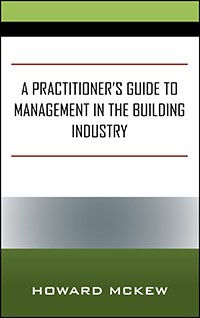In my progression through the building industry, the one constant has been the requirement for field MEC coordination. This criteria is usually specified in the contract documents and can usually be found in the Supplementary General Conditions, Division 15000 and/or Division 16000 of the contract specifications.
The specification, in a nutshell, will simply state that all trade construction drawings shall be field coordinated prior to fabrication and/or installation. These drawings will be coordinated among the mechanical and electrical contractors and their subcontractors. Coordination of communication hasn't caught on so far, so don't expect to see them at the coordination meetings, yet.
Seldom does the specification go into any more then two or three paragraphs of detail, and yet it is one of the most important activities to be performed on the jobsite. Heck, don't you want to find the installation conflicts before everything gets installed? At the same time, while the designers are briefly glossing over this piece of the contract specification, the construction manager or general contractor will frequently complement brevity with more brevity! How often is the MEC person less than qualified for the task-at-hand?
Stringent Qualifications Needed
It has been my opinion that far more emphasis needs to be placed on this coordinator role and that the individuals filling this role need to meet strict job description criteria before they can fill this position. To find that premiere MEC coordinator, the following qualifications are needed:
- Positive, can-do attitude;
- Education that includes a mix of mechanical and electrical engineering (technical school and/or college/university will do);
- Training in time management;
- Training in running a meeting and maintaining meeting notes;
- Sufficient number of years on construction sites and actively involved with field coordination;
- Knowledge of fabrication procedures (sheet metal, piping, wiring, and cabling);
- Knowledge of maintenance procedures; and
- Familiarity with the commissioning process.
Frequently, the second part of the coordination requirement is overlooked or, worse yet, not even considered a part of the MEC coordination process, which is to make sure it is serviceable.
This professional also must know the contract documents like he knows the back of his hand. All too often, a coordinator will not be well-versed in what was specified and who is required to do it. When this happens, the coordinator simply takes a backseat to the process, instead becoming a referee as others fight for their trade. An uninformed MEC coordinator does little to contribute to the problem-solving process when she has not prepared herself for the job.
Proficiency Is Key
With commissioning now in the forefront of quality control of building programs, the MEC coordinator must now become more proficient in a business where many a coordinator to date has been simply good and not great.On one project, after we were selected as the commissioning firm for a major research lab and classroom building, the client asked us what was the most important thing the construction manager could do to assist us in our commissioning effort. My response? "Make sure the MEC coordinator is the best."
If you put all the design efforts and future installation considerations into one person's hands, and then want to make sure the commissioning process will be a value-added benefit, then the MEC coordinator is the person to get the job done.
Today, coordination also encompasses the communication business, which further challenges the skills of the MEC coordinator. For a list of attendees to the coordination meetings, check out this month's "Hvacr Designer Tips." Also, check out next month's column of "Tomorrow's Engineer" to learn more about the MEC coordinator. ES



